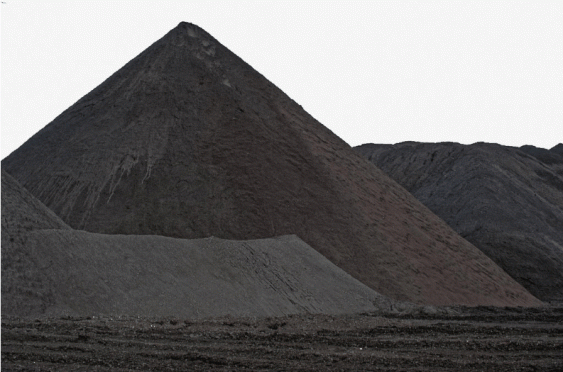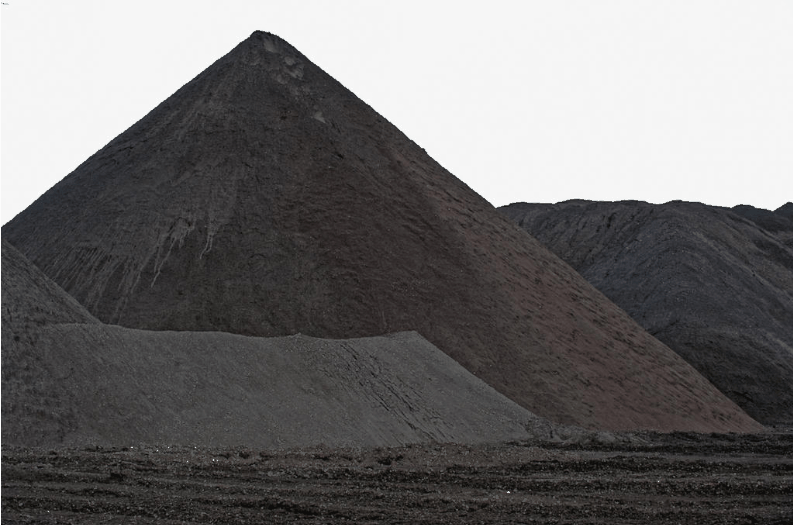West Coast port cities have already gambled and lost on coal export facilities. After investing millions of dollars in infrastructure and setting aside sizeable harbor acreage to coal export facilities, both Portland and Los Angeles watched their promised revenue from coal exports evaporate.
Worse yet, local communities were stuck with the tab. The abandoned coal export facilities locked up millions of dollars in stranded investments and clean-up expenses, not to mention years-long missed opportunities for more durable economic development choices.

What happened in Portland?
The early 1980s saw a rush of coal companies proposing export terminals in Washington and Oregon to satisfy a hungry Asian market. Longview, Kalama, Vancouver, and Astoria all entertained proposals, but the Port of Portland bought in. Portland committed to a 25-year lease with Pacific Coal for 90 acres and 900 feet of prime riverfront for a coal export terminal. Governor Atiyeh even broke ground at the site with a giant gold-painted power shovel in 1982.
The Port and investors spent $25 million building a coal export terminal. The project imploded just two years later after Asian markets proved unstable, unreliable, and not-so-hungry. After a five-month investigation in 1984, the Oregonian reported, “Port and Pacific Coal officials heedlessly plunged ahead despite clear warnings that they might never move a solitary lump of coal.” And they never did.
The Oregonian found that the terminal’s construction contractors didn’t get paid, public and private debts went bad, and lawsuits flourished. Public officials and private financiers alike were hoodwinked by shady operatives over-hyping Asian demand for US coal that could be more cheaply supplied domestically or by other countries, such as Australia. According to the Oregonian:
What the [Far East trade representatives] apparently had in mind was a reserve supply that also would work to keep base prices low. If West Coast ports could be talked into spending their own money to turn themselves into Far East coal colonies, so much the better.
By betting on coal, the Port wasted prime industrial land, money, and jobs. The Oregonian noted:
Analysts later determined that coal export failed because the Asian demand was based on promises rather than actual long-term contracts. And international banks studying the issue found that the demand for coal had been ‘vastly overstated.’
Soon after the Port of Portland collapse, nearly all other West Coast coal plans were scrapped.
What happened in Los Angeles?
Despite Portland’s dramatic failure in the 1980s, a decade later Los Angeles forged ahead with another “world class” coal export facility. In the early 1990s, coal giant Peabody led a consortium of investors that promised jobs, tax revenue, and environmental protection with a new coal export terminal at the Port of Los Angeles (LAXT). The enormously divisive project alarmed neighbors and nearby workers.
A 1993 Los Angeles Business Journal article seems to prefigure today’s debates in the Northwest:
… although the terminal will create jobs and taxes throughout Southern California, the terminal will have a negligible impact on L.A. County because the product (coal) is sourced from other states and the automated terminal won’t generate many direct jobs.
And:
The City of Long Beach filed a lawsuit July 14, alleging that the Port of L.A.’s environmental impact report doesn’t adequately address the negative environmental impact of coal dust that will be spewed from the massive uncovered storage pile of coal and petroleum coke.
Fears proved well-founded. The terminal experienced at least two fires after dangerous amounts of coal dust accumulated in the ship-loading machinery. By that time, however, Peabody was no longer around; perhaps sensing market weakness, they dropped out of the consortium before the terminal was built.
The facility closed just six years after it opened owing to unfavorable market conditions.
When the facility shut down, the City of Los Angeles had to write off $19 million of capital investment, and forfeit $94 million in expected revenue. Ultimately, the city was sued for improperly managing the site—and for failing to consider alternative uses of the site—and taxpayers shelled out $28 million to settle the suit.
In fact, LAXT’s development and subsequent closure sparked a firestorm of lobbying, backroom deals, and lawsuits. As one city councilmember at the time put it, “Every lobbyist I have ever heard of is in this chamber… I would like to know where, if [the terminal] is on the verge of bankruptcy, they got the money to hire all these lobbyists.” The LA Times reported that the terminal, “made 25 political contributions totaling more than $10,000 to city officials and candidates including Mayor James K. Hahn and his sister, Councilwoman Hahn.”
Today, it is not surprising that so many Northwest ports have already rejected coal export schemes. It’s an especially smart move given that clean redevelopment projects offer better economic returns, more jobs, and less risk. For more on that, stay tuned for the next blog post in this series.
Much of this blog post originally appeared in the research memo ”Coal Export: A History of Failure for Western Ports,” a joint project of Sightline and Columbia Riverkeeper.


Comments are closed.